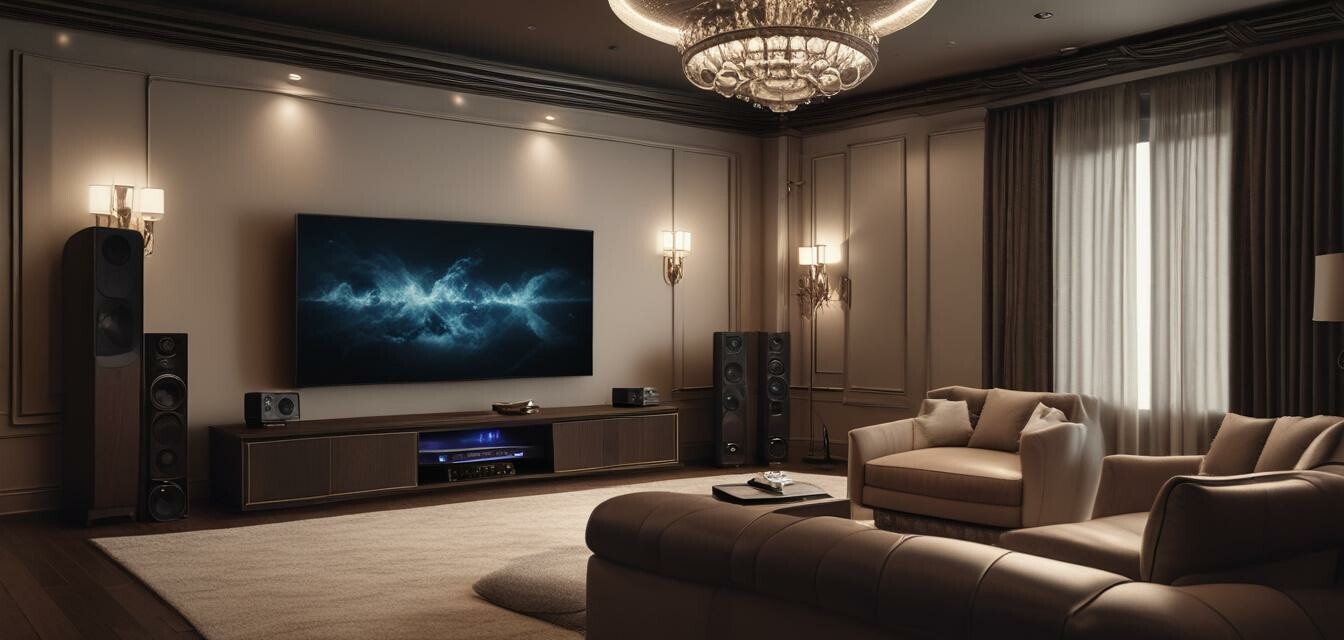
How to choose the best audio format for your home theater
Key takeaways
- Understanding different audio formats is crucial for a high-quality sound experience.
- Common formats include Dolby Atmos, DTS:X, and PCM.
- Consider your speaker setup and receiver capabilities when choosing an audio format.
- Future-proofing your home theater with versatile audio formats can enhance your experience.
- Compatibility with your media sources is essential for optimal performance.
When it comes to creating an immersive experience in your home theater, the audio format plays a crucial role. With various options available, selecting the best audio format can be challenging. This guide aims to simplify your decision-making process by providing an overview of different audio formats and how to choose the best one for your home theater setup in 2025.
Understanding audio formats
Before diving into the specifics, it's essential to understand what audio formats are and how they affect your home theater experience. Here's a simple breakdown:
| Audio Format | Description | Best For |
|---|---|---|
| Dolby Atmos | Object-based audio that provides a more immersive experience. | Home theaters that prioritize cinematic sound. |
| DTS:X | Similar to Dolby Atmos, it allows for flexible speaker setups. | Users looking for customizable audio experiences. |
| PCM (Pulse-code modulation) | Uncompressed audio providing clear sound quality. | Simple setups without extensive surround sound requirements. |
| Dolby Digital | Standard format used in DVDs and Blu-ray discs. | Basic home theater setups or older equipment. |
What to consider when choosing an audio format
Speaker setup
The first step in selecting the best audio format for your home theater is evaluating your speaker setup. The number and placement of speakers will significantly impact how sound is processed. Here’s what to keep in mind:
- Determine the number of speakers you plan to use.
- Consider whether your speakers are capable of handling advanced audio formats like Dolby Atmos or DTS:X.
- Look into the placement of your speakers for optimal sound distribution.
Receiver capabilities
Your audio/video receiver (AVR) is the heart of your home theater. Ensure it supports the audio formats you intend to use. Key considerations include:
- Check for HDMI pass-through capabilities for modern audio formats.
- Ensure the receiver can decode the audio formats you plan to use.
- Consider the number and types of inputs available for your devices.
Source compatibility
Different media sources support various audio formats. When choosing an audio format, evaluate the following:
- Streaming services like Netflix and Amazon Prime often support advanced audio formats.
- Physical media such as Blu-ray discs usually come with multiple audio options.
- Consider video game consoles that may also use specific audio formats.
Future-proofing your home theater
Investing in versatile audio formats can save you the hassle of upgrading your system in the near future. To achieve this:
- Choose equipment that supports the latest audio technologies.
- Stay informed about technological advancements in home audio.
- Consider modular setups that can be easily upgraded.
Conclusion
Choosing the best audio format for your home theater requires careful consideration of several factors, including your speaker setup, receiver capabilities, and source compatibility. By understanding the options available and following the tips outlined in this guide, you can create an immersive audio experience that enhances your home theater for years to come.
Pros
- Enhanced audio experience with advanced formats like Dolby Atmos.
- Customizable setups for tailored sound experiences.
- Future-proofing options for evolving technologies.
Cons
- Higher costs associated with modern audio formats and equipment.
- Complexity of setup and configuration for advanced audio formats.
- Compatibility issues with older devices.
Feel free to explore more on our Buying Guides section for tips and insights on selecting high-quality audio components. Also, take a look at our Home Theater Receivers to understand the importance of a reliable receiver in your setup. If you're interested in speakers and sound systems, we provide comprehensive reviews and comparisons to assist you in making informed decisions. Don't forget to check our Projectors & Screens page for a complete theater experience, and dive into Smart Home Integration to explore ways to incorporate technology into your audio experience.

